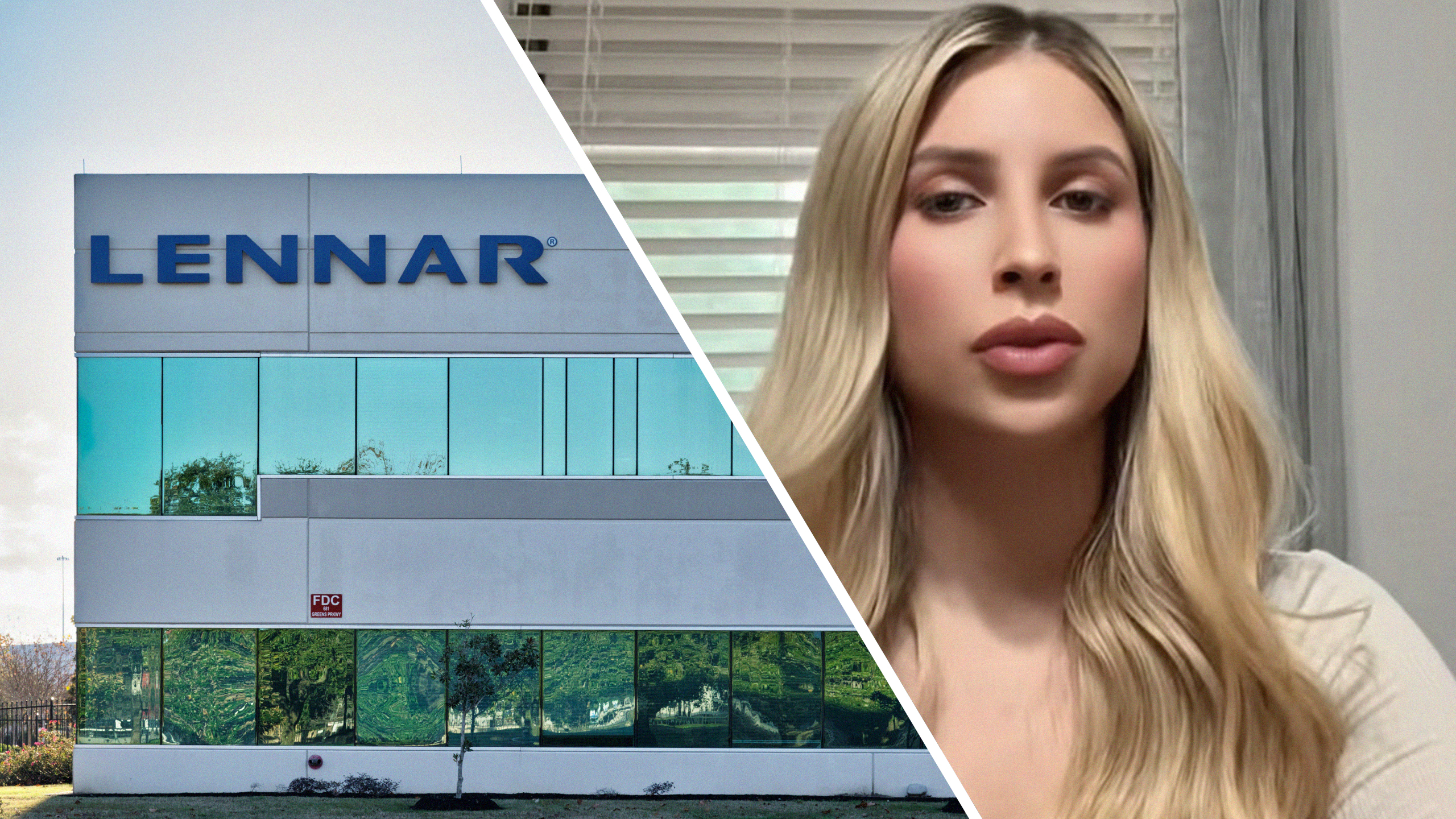
A Houston-area woman has gone viral on TikTok after sharing a harrowing warning for would-be homeowners: her dream house, built by one of the country’s largest developers, has become a health nightmare.
In a series of emotional videos, critical care nurse Ashley Frazier (@ashthorloki) details the escalating moisture and mold problems inside her newly built home. She says she bought it from Lennar just over two years ago.
These problems, she says, have triggered serious health issues. This includes chronic asthma attacks and even a lung nodule diagnosed at just 27 years old. Despite clear signs of widespread contamination, she claims the builder delayed action. Not only did they dismiss her concerns, but they also failed to investigate the source of the mold, she says.
Images of water dripping inside ceiling fixtures and mold growing out of cabinets make her TikToks gut-wrenching. She says the home near her job and in the area where family members live revealed a serious humidity problem. Every fixture fogged up daily due to condensation in the attic.
What started as subtle symptoms like the return of her childhood asthma escalated rapidly. A chest X-ray revealed a lung nodule. Within months, gastrointestinal distress became part of her daily life. Adding insult to injury, her independent mold inspection revealed airborne spore counts of up to 2.2 million spores per cubic meter. This prompted professionals to deem the house unsafe to occupy.
Who’s Lennar—and why is this significant?
Lennar Corporation ranks among America’s top homebuilders. But Frazier paid nearly $100,000 below market rate and capped her mortgage interest, assuming she’d avoid structural defects, only to discover just the opposite. According to her attorney, “her house was not sealed well enough.” This created a “high humidity and mold growth” environment within a brand-new home.
As more homeowners join similar lawsuits, this isn’t just a nightmare executed in isolation. It may mark a pattern of systemic quality issues emerging from significant developments.
Health fallout and corporate gaslighting
Frazier’s case is emblematic of larger issues: despite her diagnosis, moisture meter readings, and visible mold, Lennar reportedly refused to test within the walls or look behind cabinets, citing that as “not part of their protocol.” Their inspection, conducted 10 days after her initial request, led to minimal remediation: she was offered a replacement of just one square foot of sheetrock and a few cabinets.
When dismissed, she took matters into her own hands. She hired an independent mold inspection company whose findings dramatically contradicted Lennar’s: “significantly elevated levels of mold,” the mold report said, and she was right to stop living in the house.
TikTok amplifies women’s consumer rights
Frazier’s viral success on TikTok reflects a broader trend of women using social media to expose corporate neglect and drive accountability. Her clips, complete with time-stamped visuals, humanize what would otherwise be cold legalese in court documents. Comments on her TikToks and supporting KHOU coverage indicate a growing chorus of alarmed viewers and similarly impacted homeowners.
Frazier is actively pursuing a lawsuit, working through expert reports to hold Lennar accountable.
According to the CDC, exposure to mold-contaminated materials should be assumed to pose health risks, regardless of mold type. Especially for women managing chronic conditions like asthma or planning to start a family, silence from builders can threaten your well-being.
A warning
Frazier says she’s sharing her story not just to document her own experience, but to warn others who may be considering buying from Lennar or similar large-scale homebuilders. In her TikTok videos, she urges potential homeowners to demand thorough inspections. She also warns them to be wary of builder incentives that mask deeper structural issues.
Her call has resonated: viewers in the comments describe similar problems. They shared their own inspection tips and thanked her for speaking out about something that’s often brushed aside, especially when raised by young women challenging corporate credibility.
“Bring back local builders (and Victorian-style houses if we’re asking for things),” one of them wrote.
Another prior Lennar owner shared her experience: “As somebody who owned a lennar home and left it in 2023 i would never buy lennar again. I suspected mold and told my ex he could have the house in the divorce and took the money instead.”
And another may be seeking legal help like Ashley did: “Hold up!!! Where do I sign up because I’m on my 3rd ceiling pipe leak in 18 mos in my Lennar home!”
The Mary Sue reached out to Ashley via direct message, and to Lennar via email.
Have a tip we should know? [email protected]







